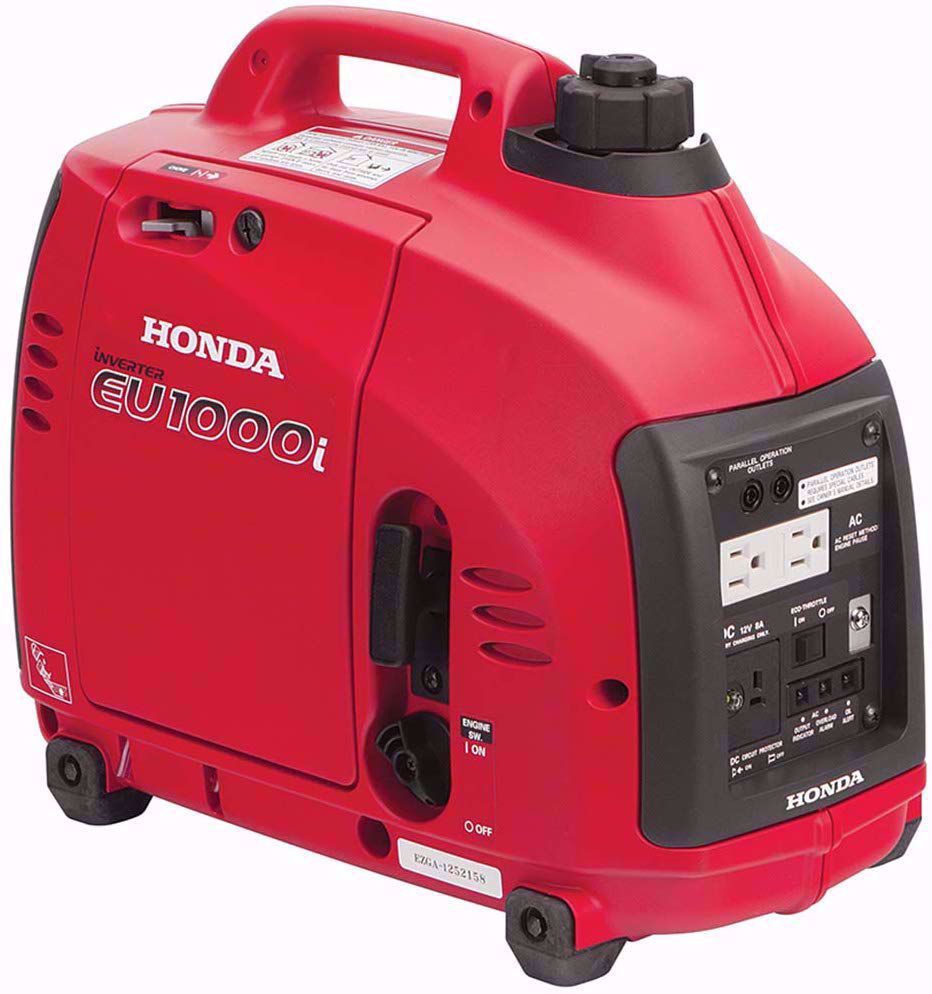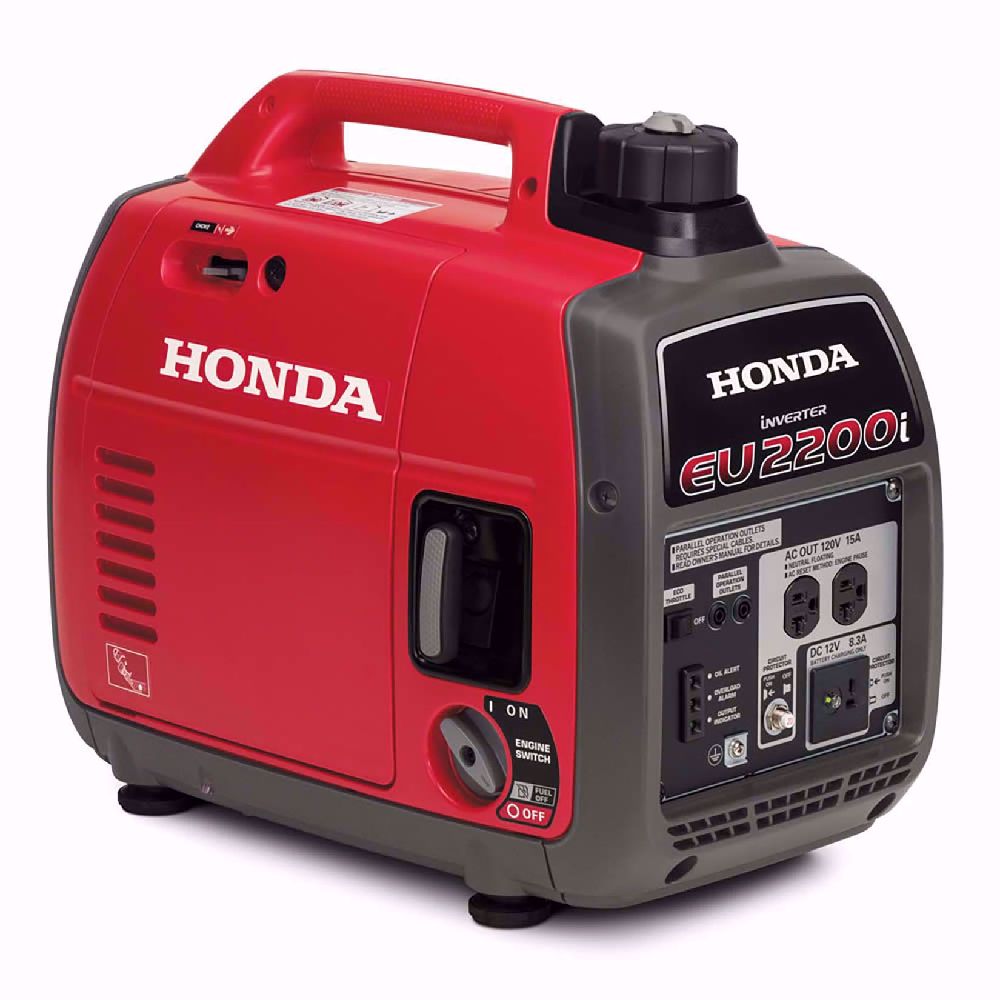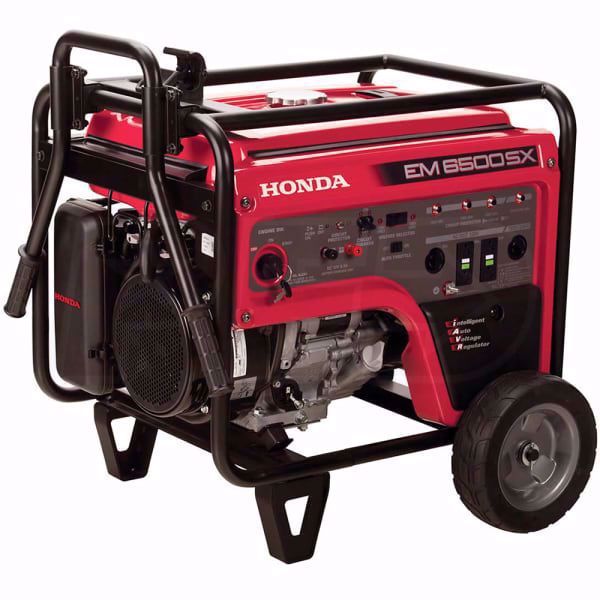Generators
Do-Cut Sales and Service has the best selection of Honda generators and a highly experienced sales & service team to answer all of your generator questions
A home generator is an important investment that can secure your family's safety and comfort even during an unexpected power loss. Whether it's a weather-induced power outage or a sudden electric current surge, a home generator can handle all your basic needs.
Great deals on generators!
Shop online today at Do-Cut's Power Equipment Warehouse
Honda Generators – Four Series
- Super Quiet Series Generators
- EU series generators range from 1,000 to 7000 watts, these totally enclosed, super quiet generators are ideal for recreational and home backup applications.
- Super Quiet generators feature an enclosed body that results in a noticeably quieter generator. Designed for quality, portability, and convenience, perfect for a trip outdoors.
- All the Super Quiet Honda generators have ultra-low noise, making them ideal for camping, RVing and home backup.
- This generator also offers a co-minder carbon monoxide detection system, while a select few generators can be controlled via Bluetooth.
- Deluxe Series Generators
- EM series generators with electric start range from 5,000 to 6,500 watts and offer a wide variety of enhanced functions for home backup and general-purpose situations.
- Deluxe generators offer convenience and reliable backup power during outages and blackouts.
- Features a heavy-duty frame, multiple front panel outlets for easy power connections and an electric start.
- Economy Series Generators
- EG series generators are deal for residential and DIY use.
- These generators are available from 2,800 to 4,000 watts.
- Economy series generators are a reliable source of no-frills power.
- These models are all equipped with oil alert and protective frames.
- The economy series generator lineup delivers old world reliability and cost savings, plus peace of mind.
- EB Industrial Series Generators
- EB generators range from 2,000 to 10,000 watts. They are used primarily for construction and rental industries.
- All EB series generator models have full GFCI and neutral bond protection for OSHA-regulated job sites.
- Features and benefits of Honda generators
- Honda generator inverter technology, means stable and clean power in a smaller lighter package. You can even operate the most sensitive electronics.
- While all Honda generators provider stable power, the inverter process takes the raw power produced by the generator and passes it through a special microprocessor.
- Automatic voltage regulator generator 4 models are equipped with an automatic regulator. This is designed to hold the voltage stability within a 1% change during operation, to ensure a consistent flow of power.
- Eco throttle system generator
- Generators with an ECO throttle system automatically adjusts engine speed to optimize the usage load through an electric governor on the generator. This will also save on fuel consumption.
- Fuel injection Generator
- Generators with fuel injection offer reliable operation, reduces fuel problems and deliver better fuel efficiency.
The Benefits of Owning a Honda Generator:
When a storm knocks out power to your area, and all your neighbors are shivering in the dark, you will still have heat and lights. If the power outage continues for several days, your generator can also save hundreds of dollars’ worth of food in your fridge and freezer. And if you choose a portable generator, you can take it with you to power a few essential gadgets on a camping trip or at a tailgate party.
There are two main types of home power generators: portable and stationary.
- Portable Generators
- These smaller generators are mounted on wheels. When a power outage hits, you must wheel the generator outside, start it, and hook it up to your home’s power system.
- You can plug your devices directly into the generator, or hire an electrician to install a special cable called a manual transfer switch, which feeds the current into your home’s electrical system. From there, you can flip the circuit breakers to route power to the devices you need, such as the fridge and lights.
- Portable generators typically provide enough backup power to keep a few critical systems running, such as your refrigerator and a few lights.
- Stationary Generators
- Also known as standby generators, a stationary generator sits in a permanent location outside of your house. A stationary generator has an automatic transfer switch built in. If the power goes out, it automatically starts and feeds power into your home’s systems.
- Standby generators are larger than portable generators and can produce enough wattage to run an entire house. However, these whole-house generators are a lot more expensive than portable generators, and you must hire a professional to install one.
Consider the Following When Owning a Generator.
- Cost
- Home generators aren’t cheap. The smallest portable models are good for powering your fridge, a sump pump, a few lights, and maybe a TV, and they cost at least $900. Larger portable models can run bigger appliances, such as an air conditioner, and can cost up to $8,000.
- Standby generators are more convenient to use but usually run at least $2,000. On top of that, you have to pay a professional installer to hook them up. According to Consumer Reports, generator installation can cost anywhere from a few thousand to over $10,000.
- Space
- It can be hard to find a place to use a portable generator. It has to be on level ground and at least 20 feet from your house — but close enough to connect to it with an extension cord.
- You also have to protect the unit from the weather because it can electrocute you if it gets wet. These generators cannot be placed inside a shed because It’s unsafe to run in an enclosed space. In- between uses, you have to find a place to store it to protect it from harsh weather and theft.
- Stationary units live in the same spot in your yard year-round, so you don’t have to worry about storing them. However, they take up a fair bit of space and can be unattractive.
- You will also need to store fuel for your generator. That is easy if you have a home standby generator that runs on natural gas, but you must store gasoline and propane outside your home for safety reasons. That said, you must keep the fuel locked up to protect it from thieves and vandals, which means adding a shed or detached garage unless you already have one.
- Maintenance
- Like any appliance, a generator needs regular maintenance to keep it running well. You have to keep it fueled and check the oil, filters, and spark plugs regularly. You also need to start it monthly and run it for about 20 minutes to keep the battery charged and the fuel lines free of moisture.
- You will also have to maintain your fuel supplies. Gasoline can go bad over time, so you must add a fuel stabilizer and refill your cans every year or so. Regular maintenance is necessary if you want to be able to count on your generator to work when an emergency strikes.
- Noise
- Generators are loud. The best ones are quiet enough to avoid bothering you while you’re indoors, but you could still get complaints from the neighbors. Some towns even have anti-noise ordinances that restrict how loud your generator can be, and/or what times you can use it.
- Safety
- You have to be careful when using a portable generator. It must be properly ventilated to avoid causing a fire or producing deadly carbon monoxide.
Come talk to the power equipment experts at Do-Cut Sales & Service. We can answer all of your questions about generators and more!
Visit one of our two locations in Canfield and Warren, Ohio




